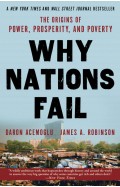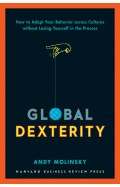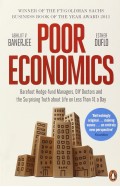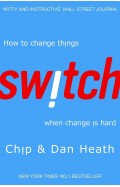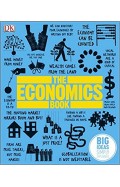- Home
- Non Fiction
- Business & Management
- Business & Economics
- People, Power, and Profits: Progressive Capitalism for an Age of Discontent
People, Power, and Profits: Progressive Capitalism for an Age of Discontent
By: Joseph E. Stiglitz
-
Rs 1,881.75
- Rs 2,895.00
- 35%
You save Rs 1,013.25.
Due to constant currency fluctuation, prices are subject to change with or without notice.
We all have the sense that our economy tilts toward big business, but as Joseph E. Stiglitz explains in People, Power and Profits, a few corporations have come to dominate entire sectors, contributing to skyrocketing inequality and slow growth. This is how the financial industry has managed to write its own regulations, tech companies have accumulated reams of personal data with little oversight, and government has negotiated trade deals that fail to represent the best interests of workers. Too many have made their wealth through exploitation of others rather than through wealth creation. If something isn't done, new technologies may make matters worse, increasing inequality and unemployment.
Stiglitz identifies the true sources of wealth and increases in standards of living, based on learning, advances in science and technology, and the rule of law. He shows that the assault on the judiciary, universities, and the media undermines the very institutions that have long been the foundation of economic prosperity and democracy.Helpless though we may feel today, we are far from powerless. In fact, the economic solutions are often quite clear. We need to exploit the benefits of markets while taming their excesses, making sure that markets work for people and not the other way around. If enough rally behind this agenda for change, we can create a progressive capitalism that will recreate a shared prosperity. Stiglitz shows how a decent middle-class life can once again be attainable by all.
We all have the sense that our economy tilts toward big business, but as Joseph E. Stiglitz explains in People, Power and Profits, a few corporations have come to dominate entire sectors, contributing to skyrocketing inequality and slow growth. This is how the financial industry has managed to write its own regulations, tech companies have accumulated reams of personal data with little oversight, and government has negotiated trade deals that fail to represent the best interests of workers. Too many have made their wealth through exploitation of others rather than through wealth creation. If something isn't done, new technologies may make matters worse, increasing inequality and unemployment.
Stiglitz identifies the true sources of wealth and increases in standards of living, based on learning, advances in science and technology, and the rule of law. He shows that the assault on the judiciary, universities, and the media undermines the very institutions that have long been the foundation of economic prosperity and democracy.Helpless though we may feel today, we are far from powerless. In fact, the economic solutions are often quite clear. We need to exploit the benefits of markets while taming their excesses, making sure that markets work for people and not the other way around. If enough rally behind this agenda for change, we can create a progressive capitalism that will recreate a shared prosperity. Stiglitz shows how a decent middle-class life can once again be attainable by all.
The EuroAnd its Threat to the Future of Europe
By: Joseph E. Stiglitz
Rs 932.25 Rs 1,695.00 Ex Tax :Rs 932.25
People, Power, and Profits: Progressive Capitalism for an Age of Discontent
By: Joseph E. Stiglitz
Rs 1,881.75 Rs 2,895.00 Ex Tax :Rs 1,881.75
Globalization and Its Discontents Revisited: Anti-Globalization in the Era of Trump - Paperback
By: Joseph E. Stiglitz
Rs 2,695.50 Rs 2,995.00 Ex Tax :Rs 2,695.50
People, Power, and Profits: Progressive Capitalism for an Age of Discontent - Paperback
By: Joseph E. Stiglitz
Rs 2,245.50 Rs 2,495.00 Ex Tax :Rs 2,245.50
The Euro: And its Threat to the Future of Europe - Paperback
By: Joseph E. Stiglitz
Rs 1,361.75 Rs 2,095.00 Ex Tax :Rs 1,361.75
The Road to Freedom - Economics and the Good Society
By: Joseph E. Stiglitz
Rs 5,665.50 Rs 6,295.00 Ex Tax :Rs 5,665.50
Zubin Mehta: A Musical Journey (An Authorized Biography)
By: VOID - Bakhtiar K. Dadabhoy
Rs 472.50 Rs 1,050.00 Ex Tax :Rs 472.50
Sales Encyclopedia The Most Comprehensive How To Guide On Selling
By: Robert Chapin
Rs 671.25 Rs 895.00 Ex Tax :Rs 671.25
Why Nations Fail The Origins of Power Prosperity and Poverty
By: James A. Robinson
Rs 2,335.50 Rs 2,595.00 Ex Tax :Rs 2,335.50
The 10 Trillion Prize Captivating thely Affluent in China and India
By: Michael J. Silverstein
Rs 987.75 Rs 2,195.00 Ex Tax :Rs 987.75
Global Dexterity: How to Adapt Your Behavior Across Cultures without Losing Yourself in the Process
By: Andy Molinsky
Rs 1,262.25 Rs 2,295.00 Ex Tax :Rs 1,262.25
Poor Economics: The Surprising Truth about Life on Less Than $1 a Day
By: Abhijit Banerjee
Rs 2,335.50 Rs 2,595.00 Ex Tax :Rs 2,335.50
Switch: How to change things when change is hard - (PB)
By: Dan Heath
Rs 767.25 Rs 1,395.00 Ex Tax :Rs 767.25
The Great Degeneration: How Institutions Decay and Economies Die
By: Niall Ferguson
Rs 1,556.75 Rs 2,395.00 Ex Tax :Rs 1,556.75
No recently viewed books available at the moment.
Zubin Mehta: A Musical Journey (An Authorized Biography)
By: VOID - Bakhtiar K. Dadabhoy
Rs 472.50 Rs 1,050.00 Ex Tax :Rs 472.50
The EuroAnd its Threat to the Future of Europe
By: Joseph E. Stiglitz
Rs 932.25 Rs 1,695.00 Ex Tax :Rs 932.25
People, Power, and Profits: Progressive Capitalism for an Age of Discontent
By: Joseph E. Stiglitz
Rs 1,881.75 Rs 2,895.00 Ex Tax :Rs 1,881.75
Globalization and Its Discontents Revisited: Anti-Globalization in the Era of Trump - Paperback
By: Joseph E. Stiglitz
Rs 2,695.50 Rs 2,995.00 Ex Tax :Rs 2,695.50
People, Power, and Profits: Progressive Capitalism for an Age of Discontent - Paperback
By: Joseph E. Stiglitz
Rs 2,245.50 Rs 2,495.00 Ex Tax :Rs 2,245.50
The Euro: And its Threat to the Future of Europe - Paperback
By: Joseph E. Stiglitz
Rs 1,361.75 Rs 2,095.00 Ex Tax :Rs 1,361.75
The Road to Freedom - Economics and the Good Society
By: Joseph E. Stiglitz
Rs 5,665.50 Rs 6,295.00 Ex Tax :Rs 5,665.50












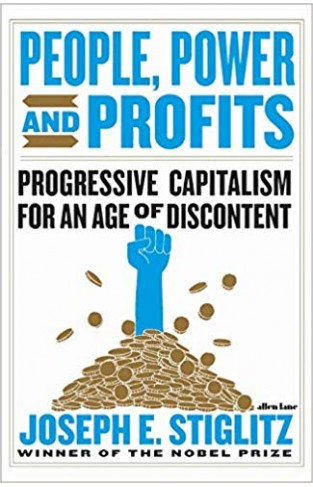


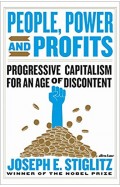
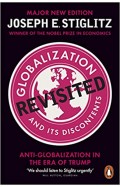
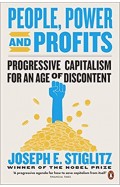


-120x187.jpg?q6)










